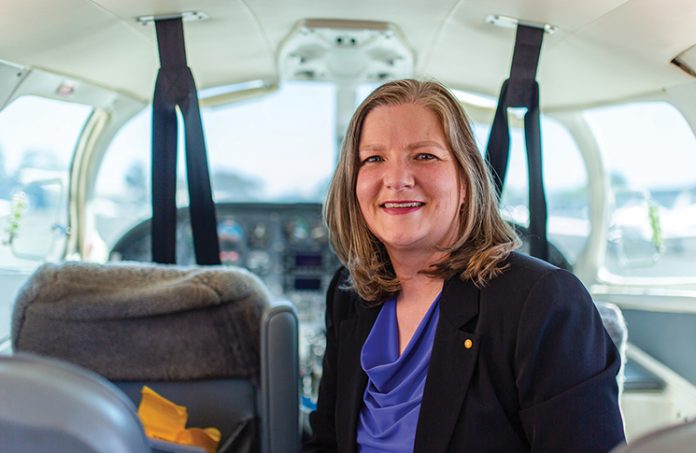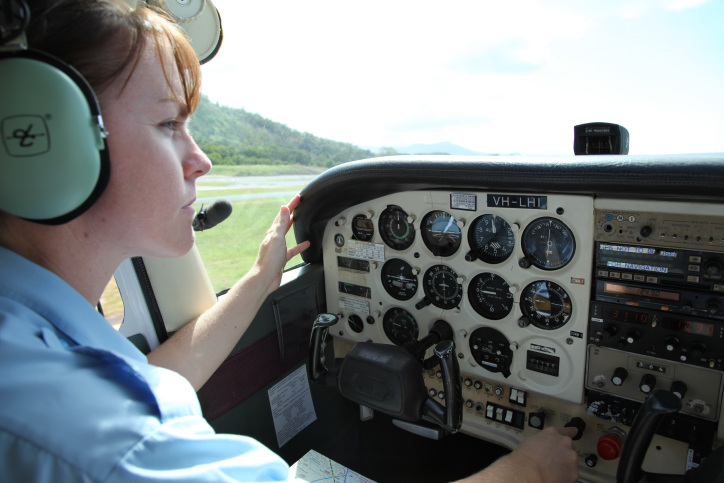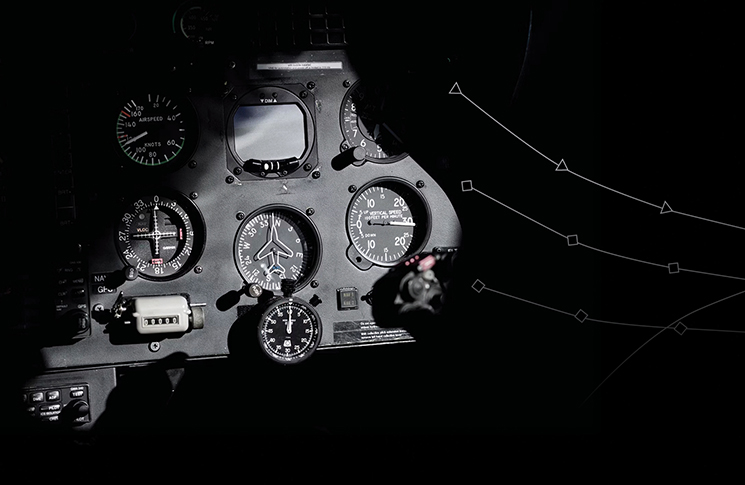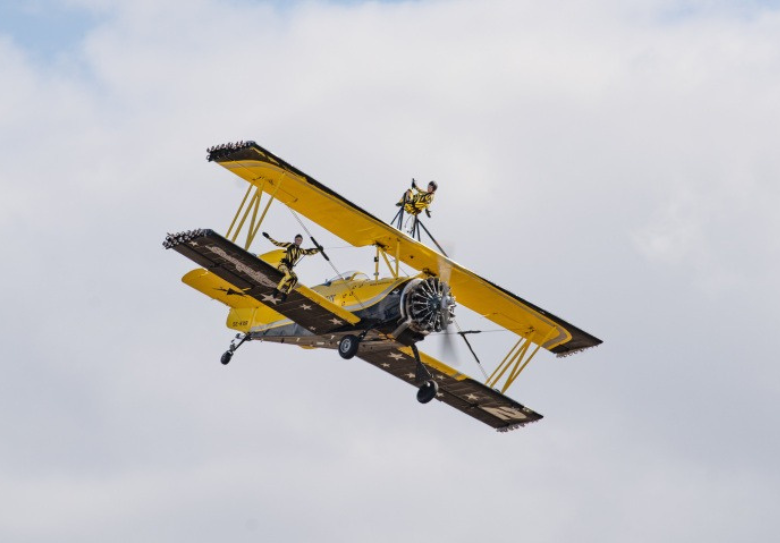Adrianne Fleming, OAM, pilot, instructor, owner and Head of Operations of Tristar Aviation, member of multiple government industry advisory panels and author of The Left Seat, has been named Australian Aviation’s Female Aviation Leader of the Year 2022.
Her hugely successful career unfolded gradually and was inspired by others successes and struggles. With a ‘can-do’ attitude, she embraces whatever comes her way, putting her hand up to do things, motivating people to come with her and a desire to ‘just get the job done’.
She spoke to Angela Stevenson.
Your LinkedIn profile says you ‘always knew your destiny was flying’. This begs the obvious question – how?
When I was little, I used to climb trees or perch myself at the top of a lookout, I loved being at the top of things. At about 6 or 7, I was at my grandmother’s house – up the tree as usual – and there were police aeroplanes flying over. I realised they were up high, looking down and could see more, so I decided that’s what I wanted to do. I wanted to be them.
Not coming from an aviation family, how did you go about having the ‘I want to be a pilot’ conversation with your parents in the 1980s? Was it something you had to fight for?
Funnily enough, no, not at all. When I was in Grade 5, Deborah Wardley was in the news, fighting for a commercial pilot job at Ansett, and I said to Mum, ‘What if they won’t let me be a pilot?’ She said, ‘that doesn’t matter. I’m sure they’ll have changed the rules by then and, if not, we’ll fight them.’ It’s only been in my adult years that I look back and think, ‘I was pretty lucky’.
Wanting to be a pilot and doing it are 2 very different things. How did you do it?
By the time I was 14, I’d saved up enough money for a joy flight with my best friend. So I rang my grandpa, who did so much for me, and asked if he could drive us to the airport and did he want to come too, as I was paying? He said, ‘Of course!’ So off we went in the Cessna 172 for a city flight. Then, I somehow had to make this magical figure of $4,500, a huge amount of money at the time, to learn to fly.
As I left school, a teacher asked why I hadn’t filled in a university preference card. I said I wasn’t interested in university because there were no aviation options. She replied, ‘Girls can’t be pilots’. Needless to say, I didn’t listen to her. I found a full-time job as a flight data officer at Air Traffic Control and, with my very first pay check in 1988, I took my first instructional flight. My journey to where I am now was through a restricted private pilot licence, to private pilot licence in 1990, then onto commercial in 1992. I gained my instructor rating in 1993.
She replied, ‘Girls can’t be pilots’. Needless to say, I didn’t listen to her.
You are, or have been, an active member of several government panels; who or what inspired your interest in politics and government?
In Grade 5, I geared everybody up and we ran a bit of a protest because we had to sit on the floor all the time and we didn’t like it. Then, in Grade 6, the boys played on ‘the black’ (the bitumen) and the girls were meant to play on the swings. We didn’t like wearing a tunic for that – we wanted to wear corduroy pants, like the boys. We met with the parents and they talked with the school. I didn’t realise it at the time, but yes, I was agitating and gathering support for change. Now I look at the girls playing (at the school) in their trousers and think, ‘That was some of my efforts that did that!’
And then, significantly, I had this epiphany at Nancy Bird’s funeral in 2009. Dick Smith was doing the eulogy, saying, when something wasn’t right in aviation, Nancy would ring and say, ‘Hey, that’s not right! Who do I talk to?’, and she was always advocating for a Minister for Aviation, someone who had aviation’s back. I came out of the church, called my husband and said, ‘I think I need to go into politics’. So off I went.
In more recent years, our state government made a housing proposal, which I believed wasn’t a result of proper consultation with the community. So, again, I reached out to the community, gathered support and we made noises. It didn’t change anything, but through that I began working at the local Neighbourhood House and with the council, working to improve other amenities in the area to bridge the gap with social housing. I enjoy working with the community, being chair of a local network that helped bring all the different services and people together to identify issues that can be fed up to government or council.
It seems you began developing leadership skills many years ago, to get things done by talking to people, gathering support, bringing people along with you and by being inclusive …
I suppose I didn’t realise or understand it was a strength of mine, until just recently, but that’s what it was, yes.
… and embracing new opportunities?
Identifying opportunities is always good. I enjoy it in business and I love new environments. Yes, aviation and business are the reasons I work with India, but there is so much else of that country I have fallen in love with – the culture, the people, the environment. When I step into something, I don’t half step into it – I immerse myself in it.
And speaking of government, how do you see your roles on advisory panels? Why is it important to you and would you recommend it to others?
You can sit back and complain about something or you can do something about it. Having a seat at the table and being able to affect change is important. When you see a rule that has been tweaked and you know you contributed in some way, it’s pretty satisfying! If you get the opportunity, go for it!
And it’s not all, ‘There’s a problem, there’s a problem, there’s a problem!’ – the problems need to be solved. For example, the recent Advanced Air Mobility Summit brought up issues about the space required at airports for future vertiports and urban mobility solutions – we need more space for those things. Airports are the perfect place, and what do we have? We have warehousing. We previously had plenty of space, now we don’t. And clearly there are commercial interests that are necessary, but now there is overreach. We need to come up with a solution that works for the industry.
You can sit back and complain about something or you can do something about it.
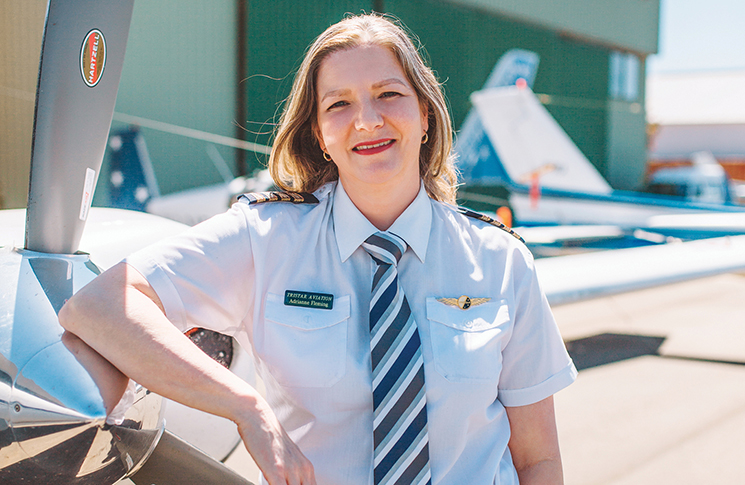
You started Tristar Aviation in 1993 with your husband, Geoff. What significant changes have you seen in aviation training since then?
The way we train people hasn’t changed overly, but the compliance, the reporting, has changed significantly. And, I guess, the question is, ‘Does the paperwork make you more professional?’ I would think the standardisation we have now and the processes in place, as much as we all thought the Part 141 and Part 142 changeovers were a nightmare, there have been good things that have come from the changes.
And for students?
For students, it’s a great time to be a pilot, I haven’t previously seen the opportunities that are around now. How we train students hasn’t really changed, but technology has. This may pose some challenges into the future. For instance, virtual reality is here! How do we use it and how much do we use it? It could be very useful, not as much fun as flying the real thing, clearly, but it could cut down on air training time. Students could potentially continue their training at home, put on their VR goggles and practise their circuits and radio calls.
For students, it’s a great time to be a pilot, I haven’t previously seen the opportunities that are around now.
What was the motivation to write your book, The Left Seat?
One of my motivating factors, was from when I’d just started flying. I read Nancy Bird’s book, My God! It’s a Woman. Mum bought me a copy for Christmas. That motivated me to join the Australian Women Pilots’ Association, become president and run a conference. It pushed me to put my hand up for things I would never have done before. Sure, I’d organised protests before but that had come from a strong sense of justice. I think now, where would I be if I’d never read Nancy’s book and been influenced by her? I would never have had the opportunities that I have today. I thought, what if someone chooses not to learn to fly because they hadn’t read my book? They think they can’t do it or it’s too complex. Or they think they need the $4,500 – significantly more now – all in one hit? What if they don’t do it? They may not get the opportunities I’ve had, potentially, to change their life.
Have you had a close call and is there something you have learnt you could share?
For sure, I’ve had moments that haven’t gone to plan and, thankfully, they’ve played out safely. One of the good things about flying is that it requires a single focus. You’re really trained to perform specific things and you adopt your pilot persona. When I get in the aircraft, I relax and everything from the day disappears, because I have to be there, I have to be in the moment, all the time. For me, that’s something I’ve noticed. So, when something doesn’t go quite as planned, manage it to the best of your ability and to the outcome and continue. After you get out of the plane, perhaps when the adrenaline is still pumping, that’s the time to think about it and really go over the possibilities.
What’s the best piece of advice you’ve ever received?
Well, I know there’s plenty of offered advice I haven’t taken! But the best piece would be to keep true to yourself, your values – don’t do something you think would do harm. Oh, and stay positive, there is always another side to the coin. If you don’t like the side of the coin you’re looking at, flip it over and have a look at the other side!
What’s next for Adrianne?
Getting the version of The Left Seat finished for students in India. I want it out there. It will have a slightly stronger focus on getting into an airline as there’s not as much general aviation or private flying over there. I’d also like to expand the syllabus for the school’s program here in Australia.
If you don’t like the side of the coin you’re looking at, flip it over and have a look at the other side!
Finally, huge congratulations on being awarded Australian Aviation’s Female Aviation Leader of the Year 2022!
It took me a while to reconcile with being nominated as a finalist and it was a complete surprise, actually, I would say, shock to be announced the winner among the amazing, talented finalists. I feel humbled by the experience and recognise there are many wonderful people around me who have contributed to who I am today and that each of them share a part of the award. And, if it gives visibility to a female who then decides to join this industry in future, I think it’s all worthwhile.

